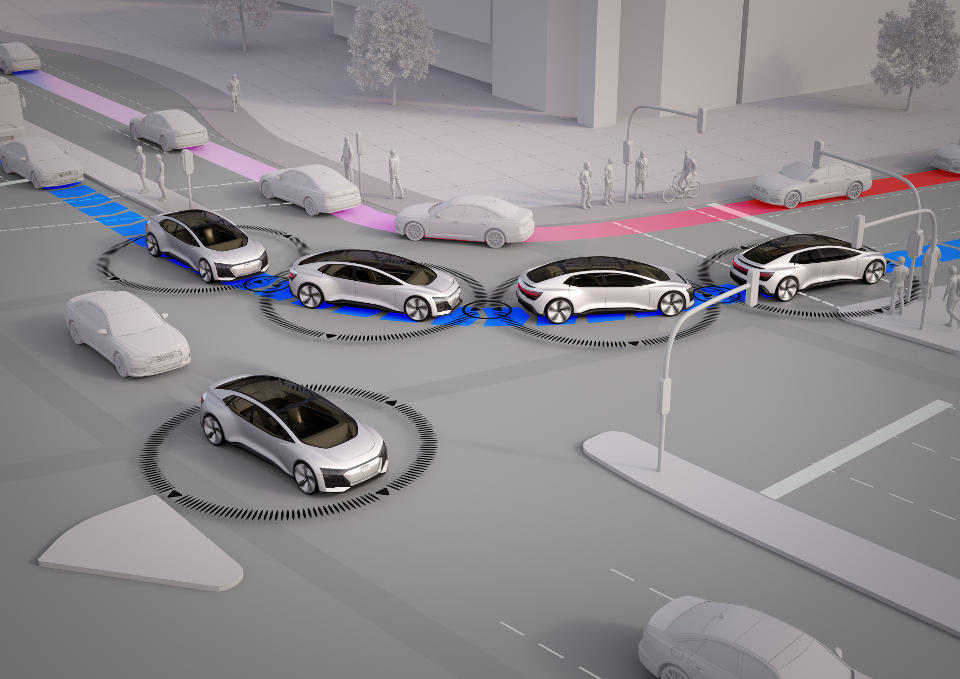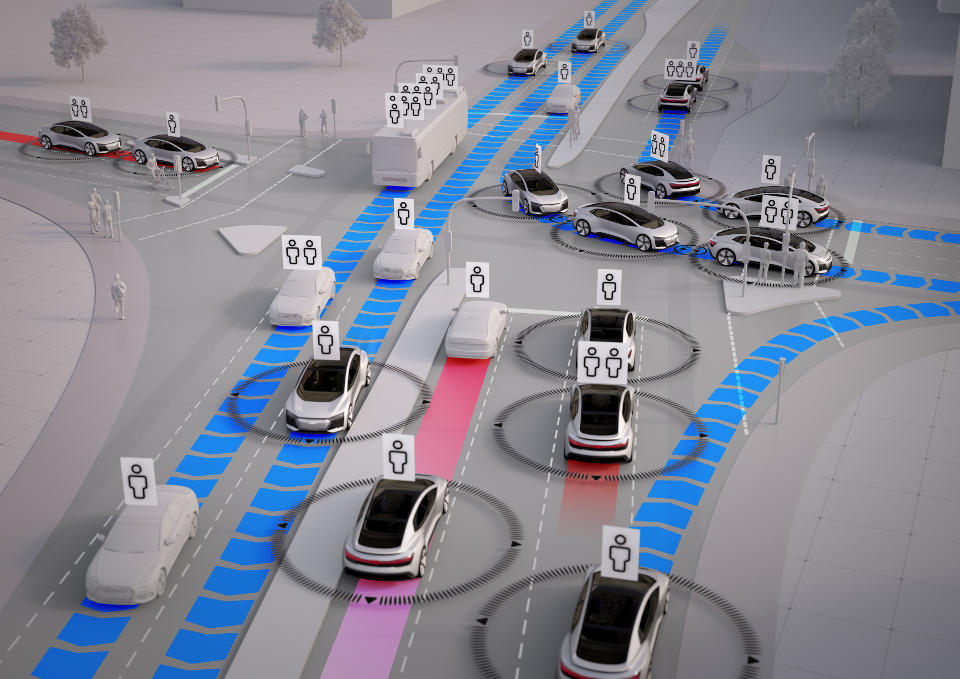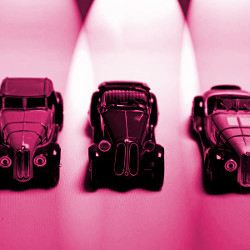Audi Looks To A Future Where Commuting Might Not Suck
https://bvzine.com/link/audi-looks-to-a-future-where-commuting-might-not-suck
There's nothing like a utopian vision of the roads of the future to get the juices flowing. It's as true now as it was almost 80 years ago, when the 1939 New York World's Fair unveiled Norman Bel Geddes's now iconic "Futurama". And considering the average person spends an average of 50 minutes a day behind the wheel (almost none of which is going to be that fun, non-commuting kind of driving), what better utopia than one in which city roads work better?
Audi reckons that new technologies hold the key to a better urban driving experience. The company's two-year research project, "25th Hour", simulates city streets to measure the impact of the changing automotive landscape. Self-driving vehicles, for example, can travel in platoons, coordinating their movement through the city to minimize disruptions and delays. Advanced ride-sharing programs can help increase occupancy rate, meaning more people can be shuttled around town with fewer cars. This could even mean that roads could be reduced to fewer lanes, giving more space to pedestrians or cyclists.

Of course, none of this is new. People have always been promising that roads are going to get better, and more accessible, whether that's by giving New York cycle lanes, Portland some streetcars or dropping those Bird scooters into any city that will take them. And in many cases, theory and practice didn't quite match; just because you build it, doesn't mean people will come and use it properly. So what makes Audi's approach stand out?
On the surface, very little. It takes a wide-ranging look at city traffic — even including the increase in delivery vehicles as more people buy more things online — but that's the kind of thing urban planners have been doing for a long time. The fact that it's based on a simulation means Audi can confidently state exact numbers; 12% more people could be transported in 33% less time by automating traffic management, replacing all vehicles in Audi's hometown of Ingolstadt would decrease travel times by a quarter. But again, plenty of academic studies have already said that.

What makes Audi's study a little more exciting is that it's been done by the people who are actually building cars. The people who are going to be responsible for getting these technologies into the vehicles we drive (and, judging by the power auto lobbyists hold in Germany, the people who may also help influence how cities adapt to accommodate them). It's all a lot shinier and more attractive than folks in lab coats crunching numbers in darkened rooms somewhere.
Is that enough to believe that the future Audi's laid out is coming? A lot of what "Futurama" saw coming in 1939 really did happen, and a lot of the technologies Audi looked at are already maturing. So, on the one hand, I can believe that city driving really is about to get a whole lot better. But on the other hand, I'm a realist — a college kid on a Bird is going to cut up the platoon of ruthlessly efficient self-driving cars, and we'll be right back where we started.
 By
By